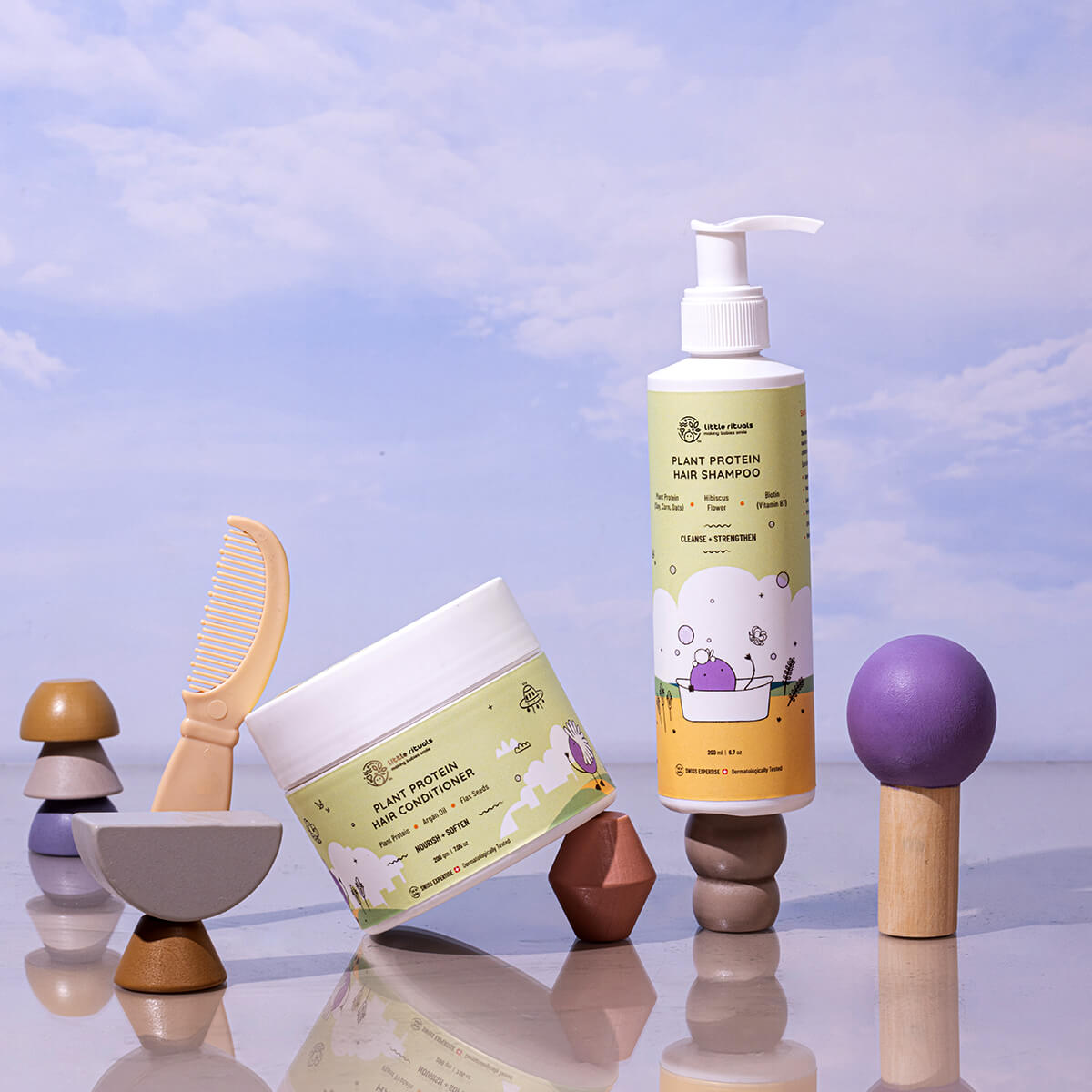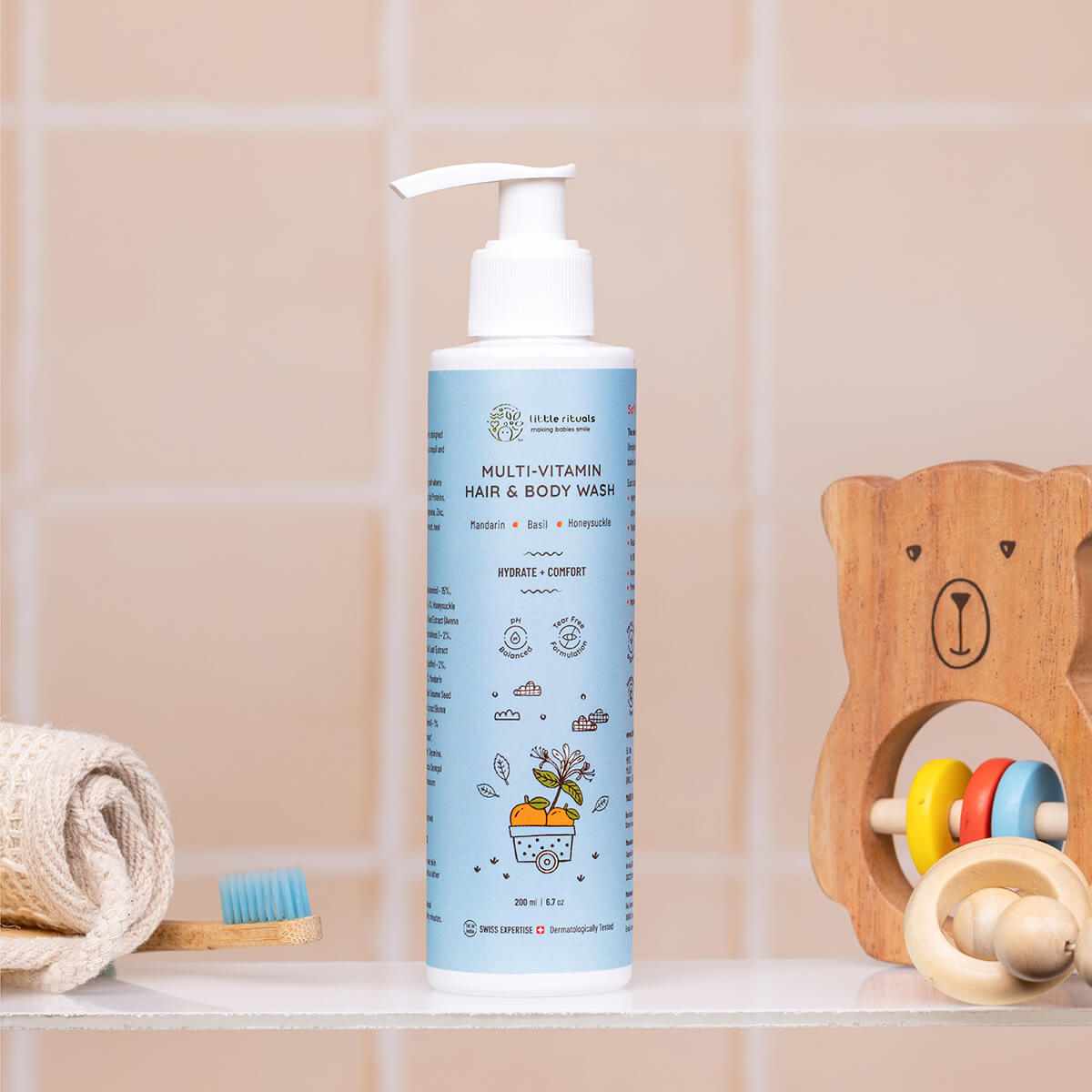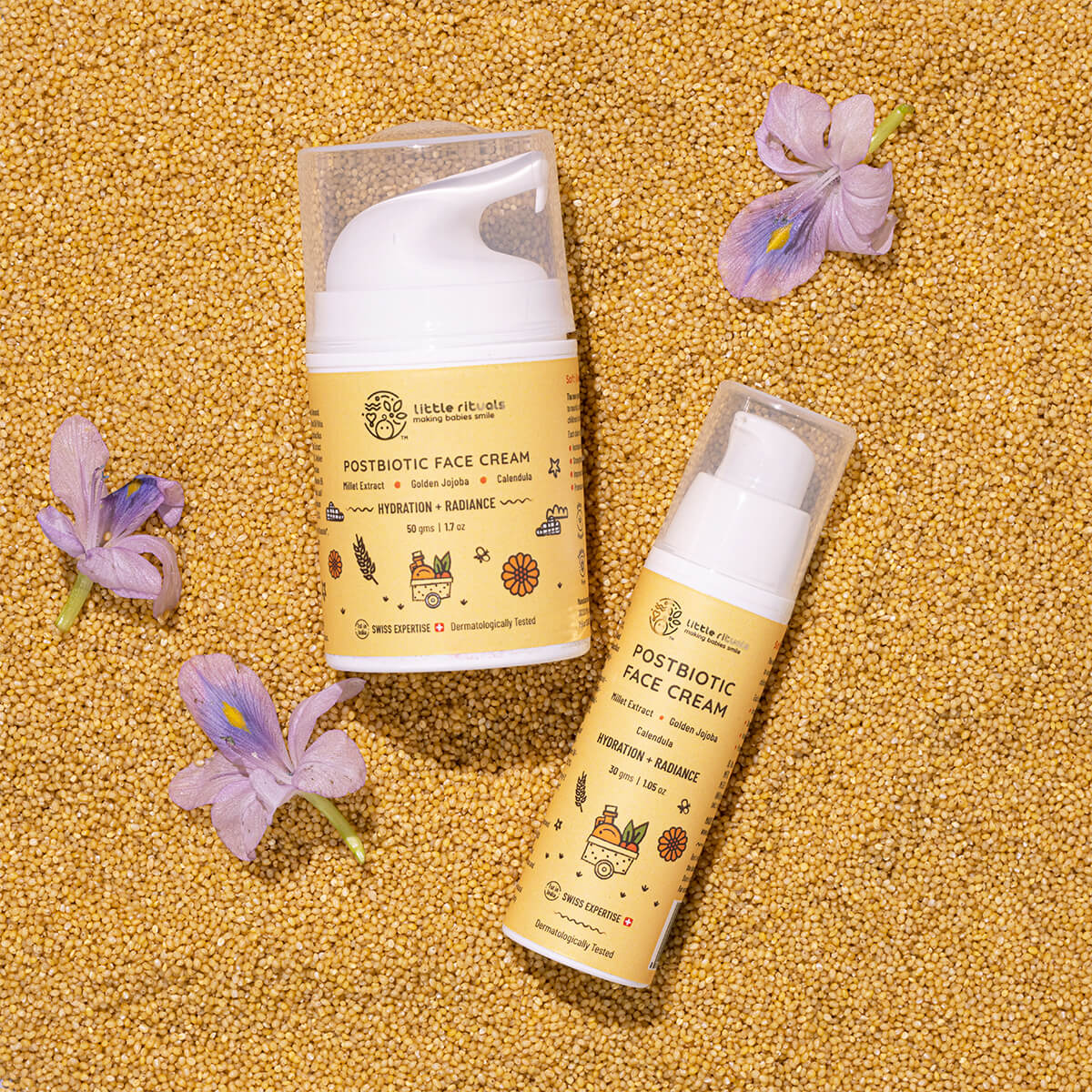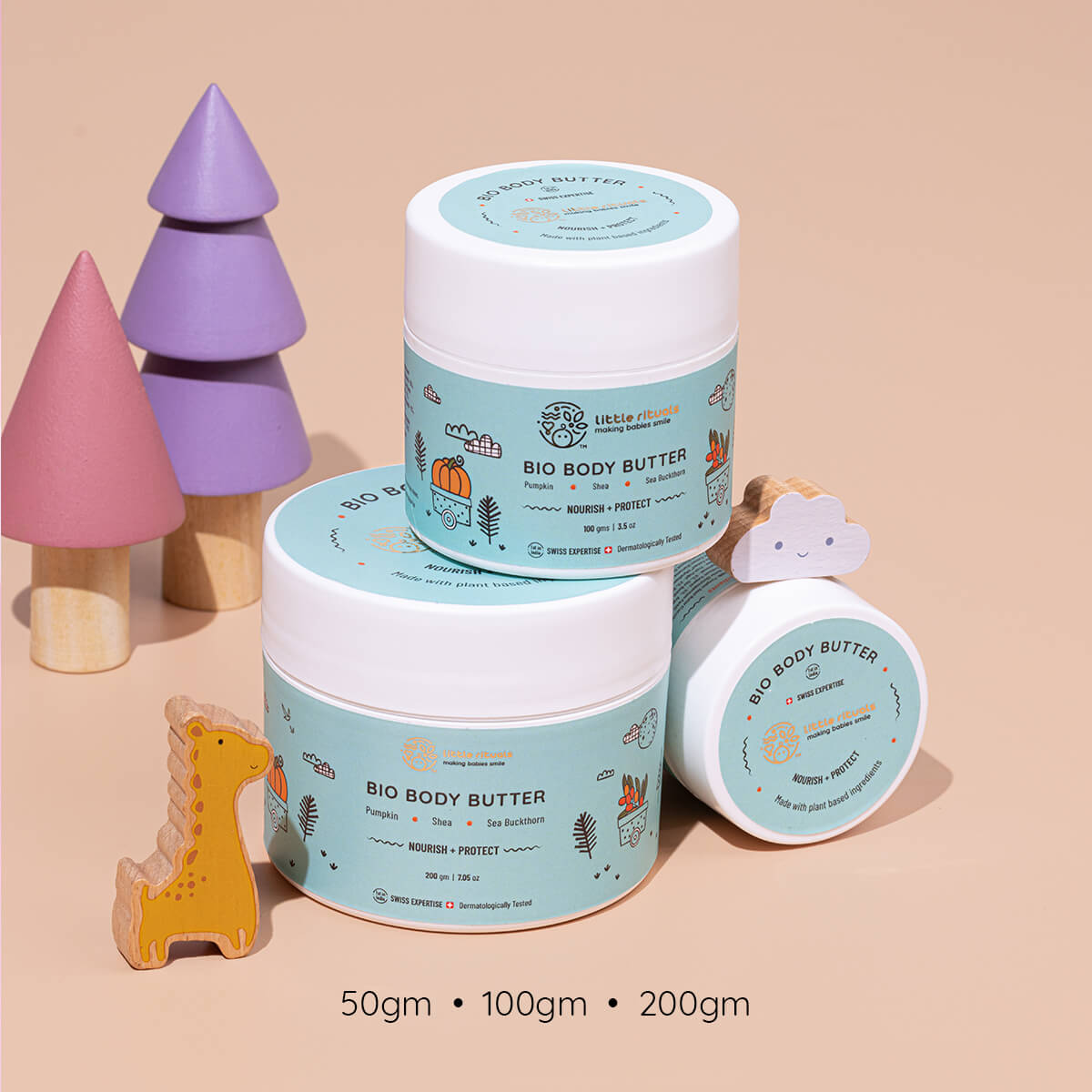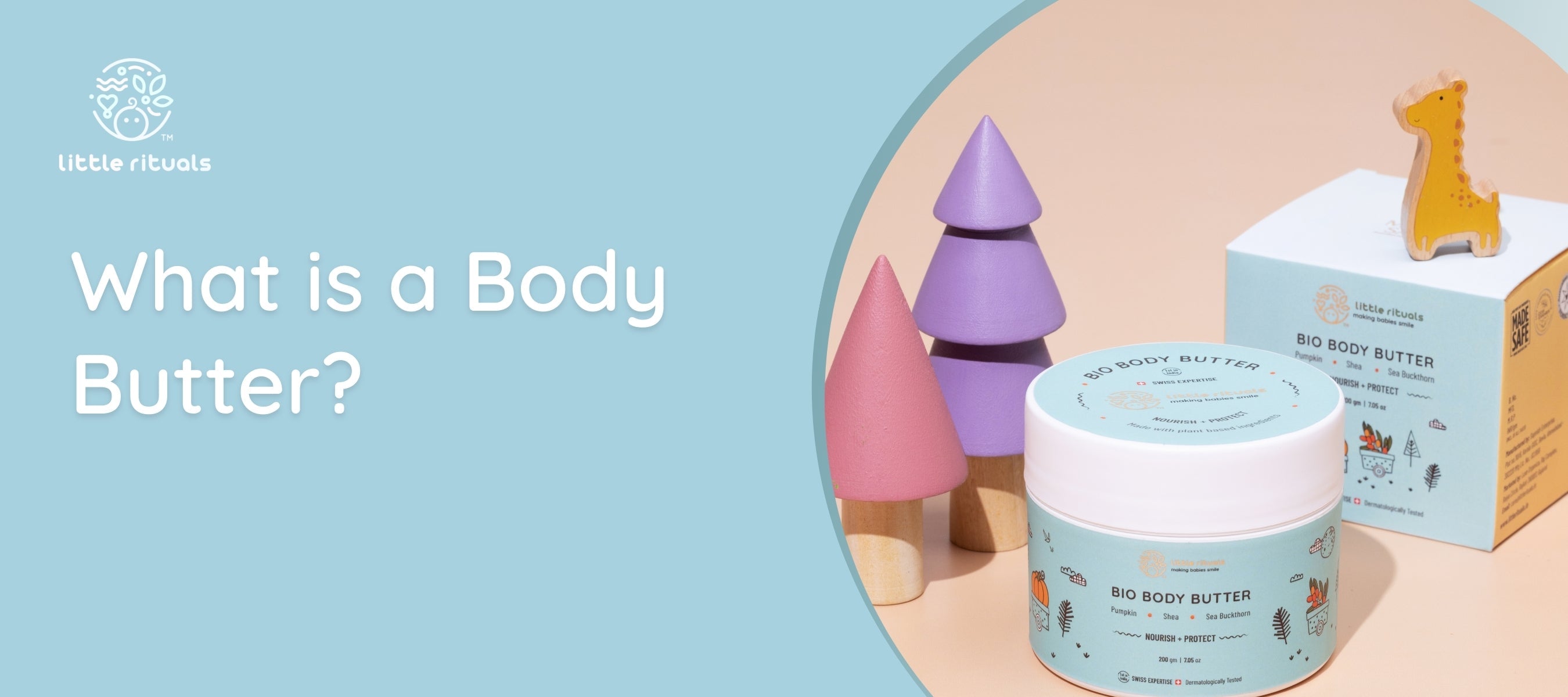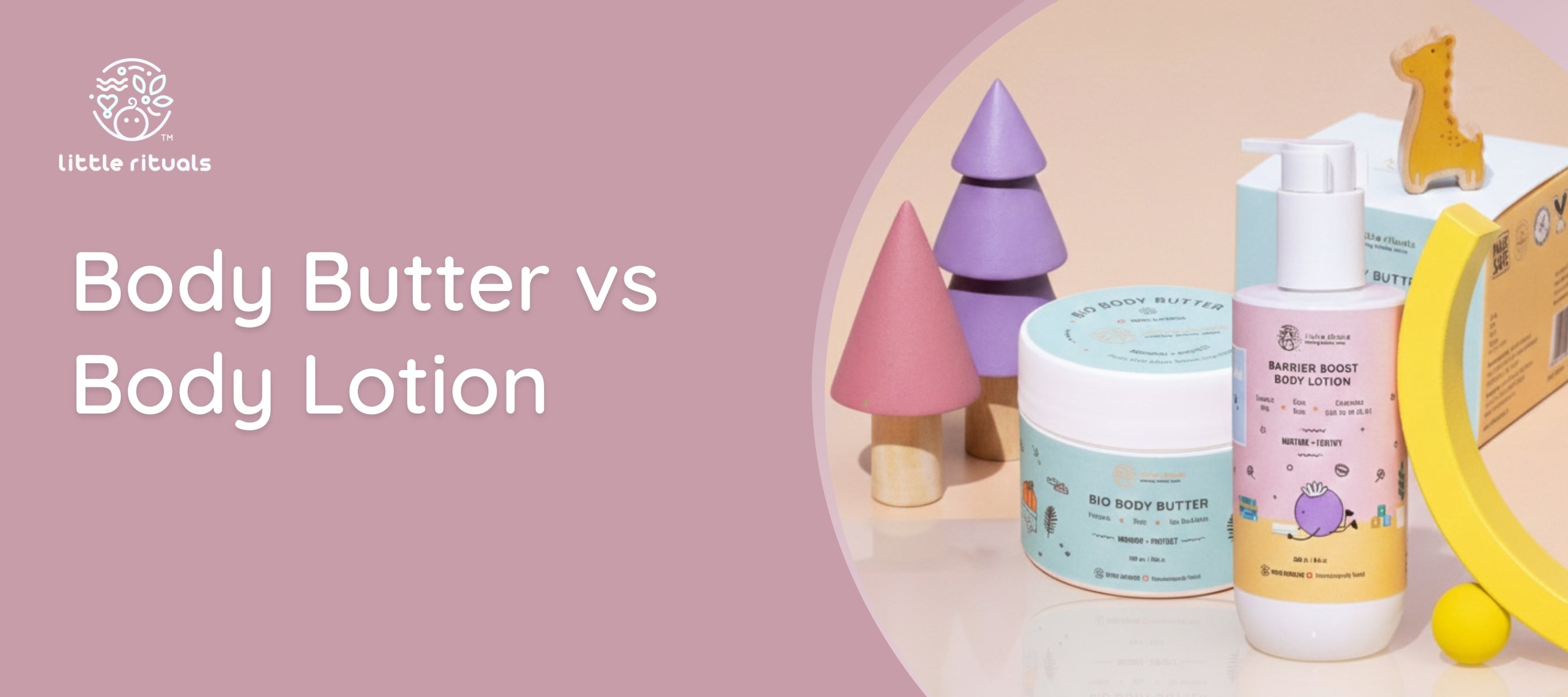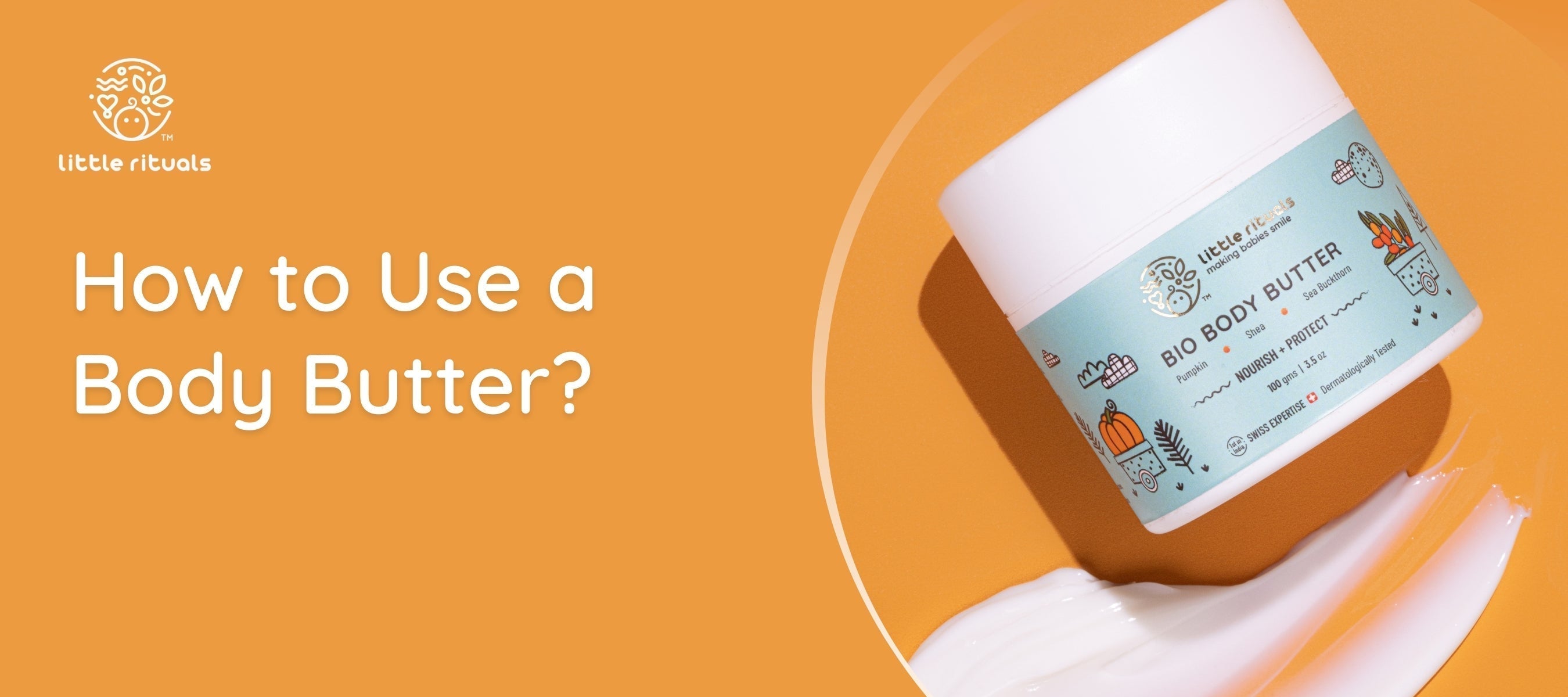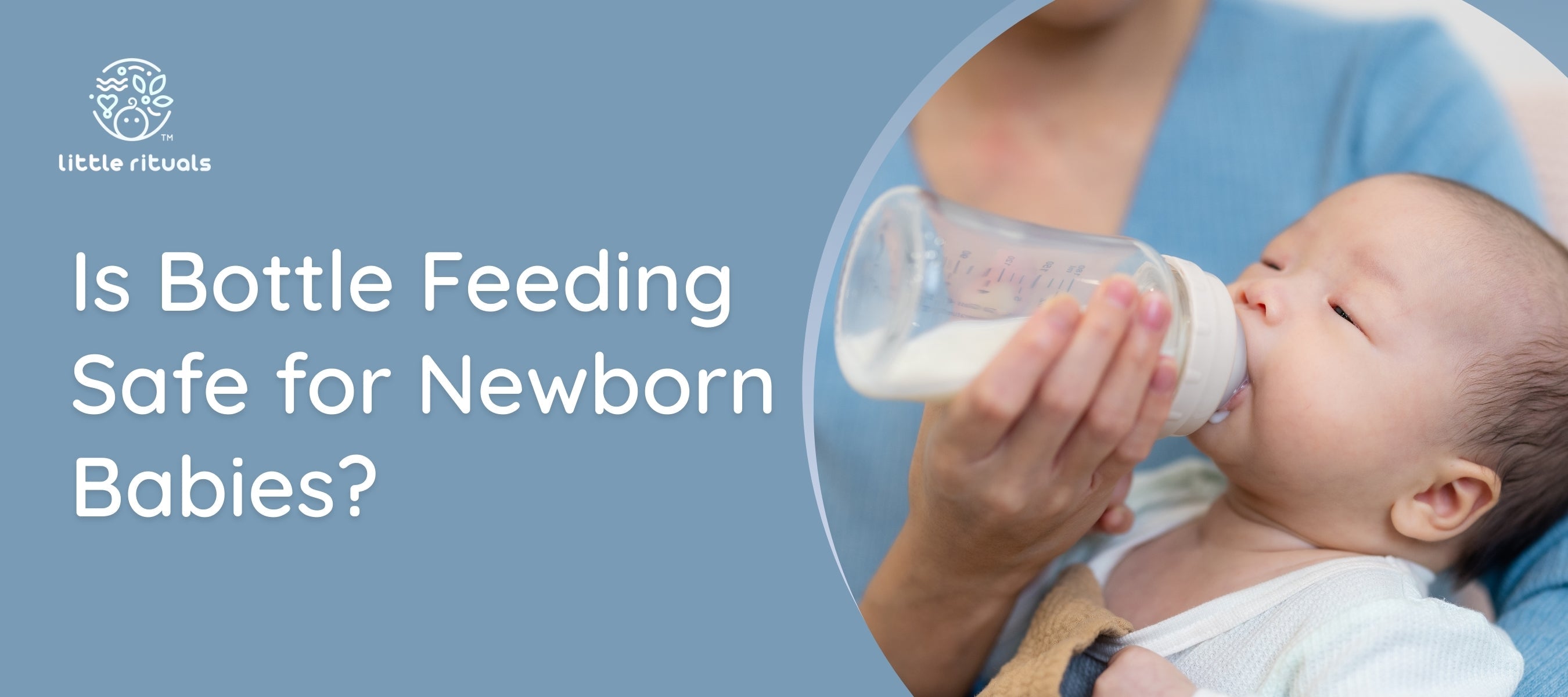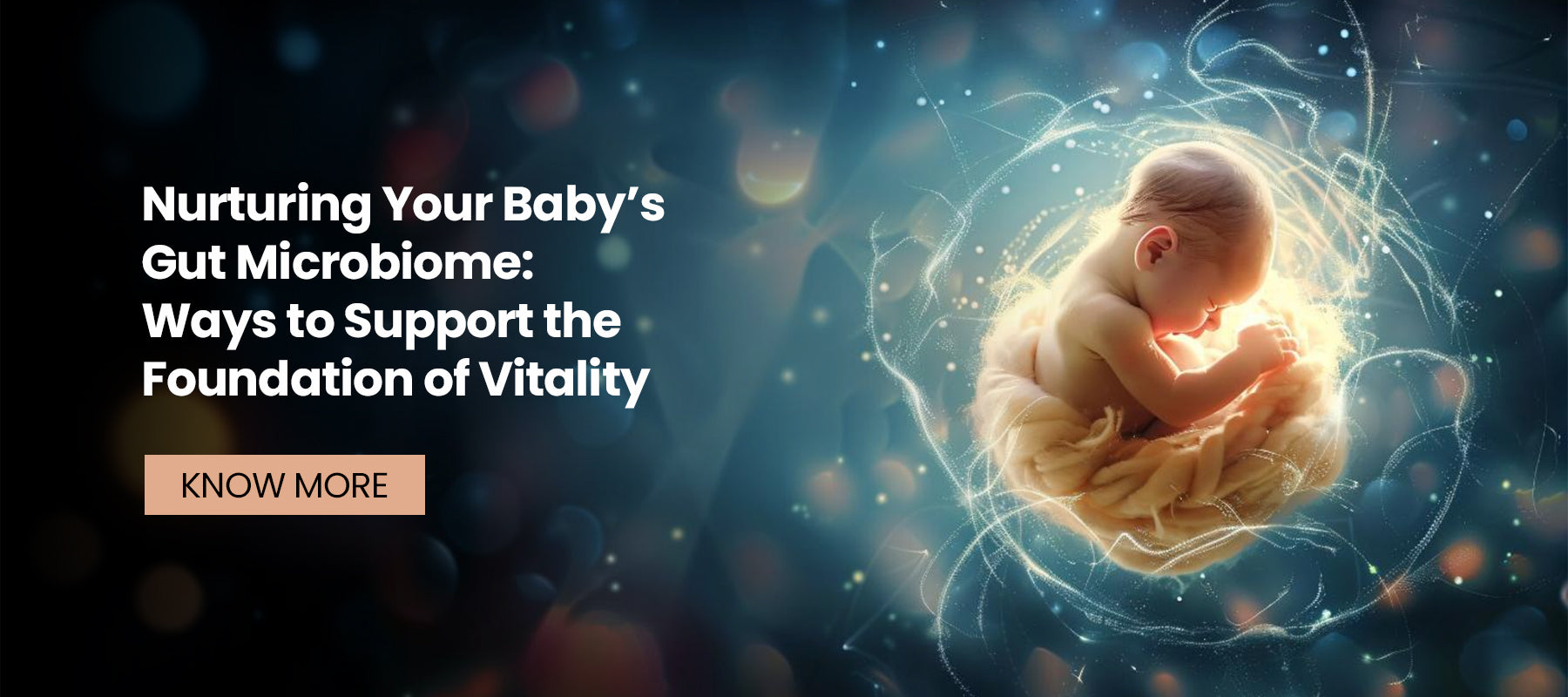
Nurturing Your Baby’s Gut Microbiome: Ways to Support the Foundation of Vitality
A fragile balance exists between a baby's gut health and overall well-being, where a thriving gut microbiome supports both the body and brain. New data shows that your baby's tiny stomach inhabitants play a massive role in shaping their vitality - but how exactly do they do it? The connection between our gut and overall health is profound - a strong gut foundation can mean the difference between vitality and sluggishness, confidence, and anxiety. As a parent, you have the unique opportunity to foster a healthy microbiome in your baby from the very start, building a foundation for resilience and vitality.
What if you could give your baby a strong foundation for lifelong health? It starts with the gut microbiome. We'll explore how to promote a healthy gut in infants, setting them up for success from the very start.

The Vital Role of the Gut Microbiome
The hundreds of microbial species in your gut churn out vital byproducts that regulate your metabolism, energy levels, and mood. Your gut is home to an estimated trillion critters - a complex, squirming soup of bacteria, fungi, and other microbes. A balanced mix of microbes in your body is the unsung hero behind a robust immune system, efficient nutrient absorption, and a stable emotional foundation. For babies, gut microbes are crucial because the microbiome is most malleable and responsive to beneficial influences in the early years of life.
When a healthy microbiome for your baby is supported, it can help protect against infections, reduce the risk of allergies, and promote a balanced metabolism. When the microbiome gets out of balance, the risks of conditions like colic, asthma, and even long-term metabolic problems start to rise. For parents, giving their child a strong foundation for a healthy life starts with cultivating a thriving gut microbiome from infancy.
Related Product: Mini Travel Kit with Bag
Microbiome Development in the Infant Gut
The process of microbiome development in the infant gut begins even before birth. During pregnancy, a mother’s microbiome influences the initial bacterial colonization in her baby, and this process accelerates during birth, especially in natural births where babies are exposed to beneficial bacteria in the birth canal.
One of the most significant builders of a healthy microbiome is breastfeeding, as it infuses little ones with breast milk that specifically fuels good bacteria growth. As babies grow and transition to solid foods, their microbiome continues to evolve, becoming more diverse and resilient.
While many factors in microbiome development are natural, confident choices can help enhance the process and ensure a robust, healthy microbiome for your baby. Think of your baby's microbiome as a superhero cape, repelling germs and promoting health. Here's how to empower it from day one.
1. Breastfeeding for Beneficial Bacteria
Breastfeeding is one of the most effective ways to establish a healthy microbiome in your baby. Rich in oligosaccharides, breast milk lays the groundwork for a healthy microbiome, wherein beneficial bacteria can multiply and become a sturdy cornerstone of an infant's immune system. Your baby needs Bifidobacterium and similar beneficial bacteria for a healthy gut and strong immunity. That's where these special oligosaccharides come in - providing the perfect snack for these microscopic friends. Breast milk showers babies with antibodies and potent immune boosters that fend off germs.
If breastfeeding is impossible, look for formula options containing prebiotics and probiotics, which help promote a balanced microbiome.

2. Skin-to-skin contact to Transfer Good Bacteria
The impact of gut microbes on your baby's vitality extends beyond what they eat; physical closeness can also influence it. Holding your baby skin-to-skin, especially in the early days, helps transfer beneficial bacteria from your body to theirs. Something remarkable happens when people do this - they find themselves enfolded in warmth and feeling deeply at ease. When parents and caregivers maintain regular skin contact, it helps populate the infant’s skin microbiome, which can later transfer to their gut, supporting microbial diversity.
3. Avoid Unnecessary Antibiotics
While antibiotics can be lifesaving when needed, their use in infancy should be cared for. When antibiotics get reckless, they blast away harmful and helpful bacteria in the gut, disrupting the microbiome's delicate balance. For infants, this can mean a slower development of their gut microbiome. If your baby needs antibiotics, consult your pediatrician about adding probiotics during and after the treatment to help rebuild the microbiome.
4. Introducing Solid Foods Thoughtfully
When it’s time to introduce solid foods, choosing nutrient-dense, fiber-rich options can make a big difference. A healthy gut microbiome needs one key thing to function correctly: fiber. The energy source powers the beneficial bacteria, leading to a more diverse and thriving community. Think fruits, vegetables, whole grains, and legumes when introducing your little one to solid foods – these wholesome staples provide a firm footing for a healthy, happy childhood. Your baby's health begins with a balanced microbiome, where trillions of tiny microorganisms work together in harmony. Avoid overly processed foods and added sugars, which can disrupt the microbial balance.

5. Remember to consider supplementing with probiotics.
Your gut microbiome is like a garden - probiotics are the helpful little workers that keep everything in balance. Some pediatricians recommend infant-specific probiotics, especially for babies who were born via cesarean section, were formula-fed, or needed antibiotics. As your baby grows, their gut microbiome develops too - and probiotic supplements can play a vital role in that process. By fueling the growth of beneficial microbes, these supplements support a robust and resilient body from the very start.
Always consult your pediatrician before starting any probiotic regimen, as they can advise on the most appropriate strains and dosages.
6. Foster an Active Lifestyle
Physical activity can positively influence gut health, even in young children. While newborns are limited in movement, providing ample opportunities for babies to roll, crawl, and explore as they grow promotes overall health and well-being. Active play helps the digestive system, encourages microbial diversity, and contributes to a balanced, healthy microbiome for your baby.
7. Embrace Outdoor Time
Exposure to nature can be an additional way to introduce beneficial bacteria to your baby’s environment. Letting your baby interact with safe, clean outdoor settings exposes them to soil-based microorganisms that can diversify the microbiome. We're not just happiest outdoors—our bodies are healthier, too; there's mounting evidence that exposure to nature helps our microbiome thrive, leading to a stronger, more resilient us. Nature walks, picnics, and outdoor play are simple yet effective way to support a baby's microbiome development.

8. Limit Processed Foods and Sugar
While this becomes more relevant as children grow, minimizing sugar and processed foods from the start is essential for maintaining a balanced gut microbiome. When we eat processed foods, harmful bacteria get a boost, while the good guys get pushed to the side. Choosing whole, natural foods for your child’s diet will help sustain a healthy microbiome for your baby well into childhood and beyond.
It's tiny but mighty: your baby's gut microbiome is where a delicate dance between microbes and diet occurs, significantly impacting their vitality and resilience.
Must Try Products: Try Me Now
The Lasting Impact of Gut Microbes on Your Baby's Vitality
What happens in one area of our lives doesn't stay there - it reverberates, affecting our physical bodies, thoughts, and emotions. Raising a child with a healthy microbiome from the get-go is like building a solid fortress. It shields them from infection, supports a healthy gut, and gives them the resilience to overcome future health hurdles. Every decision you make from the moment your baby arrives helps forge a path that will unfold over the years, influencing the adult they'll become and the bond you'll share.
From breastfeeding to mindful nutrition, the ways to support a baby's microbiome are numerous and accessible. Start small, think big: everyday choices you make for your baby's gut health today will impact their overall well-being.
Supporting Your Baby’s Gut Health with Little Rituals
At Little Rituals, we understand how precious your baby’s health is. Baby's tiny tummy is a top priority, so we create trusted products to support a thriving microbiome from day one. Our carefully formulated supplements, including infant-specific probiotics, are crafted to foster the right environment for microbiome development in the infant gut. From gentle goodies to all-natural, allergen-friendly options, Little Rituals gives you the confidence to help your little one's gut health thrive.
Take a peek at Little Rituals, and you'll find an exciting array of must-have items that will single-handedly upgrade your morning, noon, and night, how the tiny creatures in your baby's gut affect their overall energy and zest for life.
